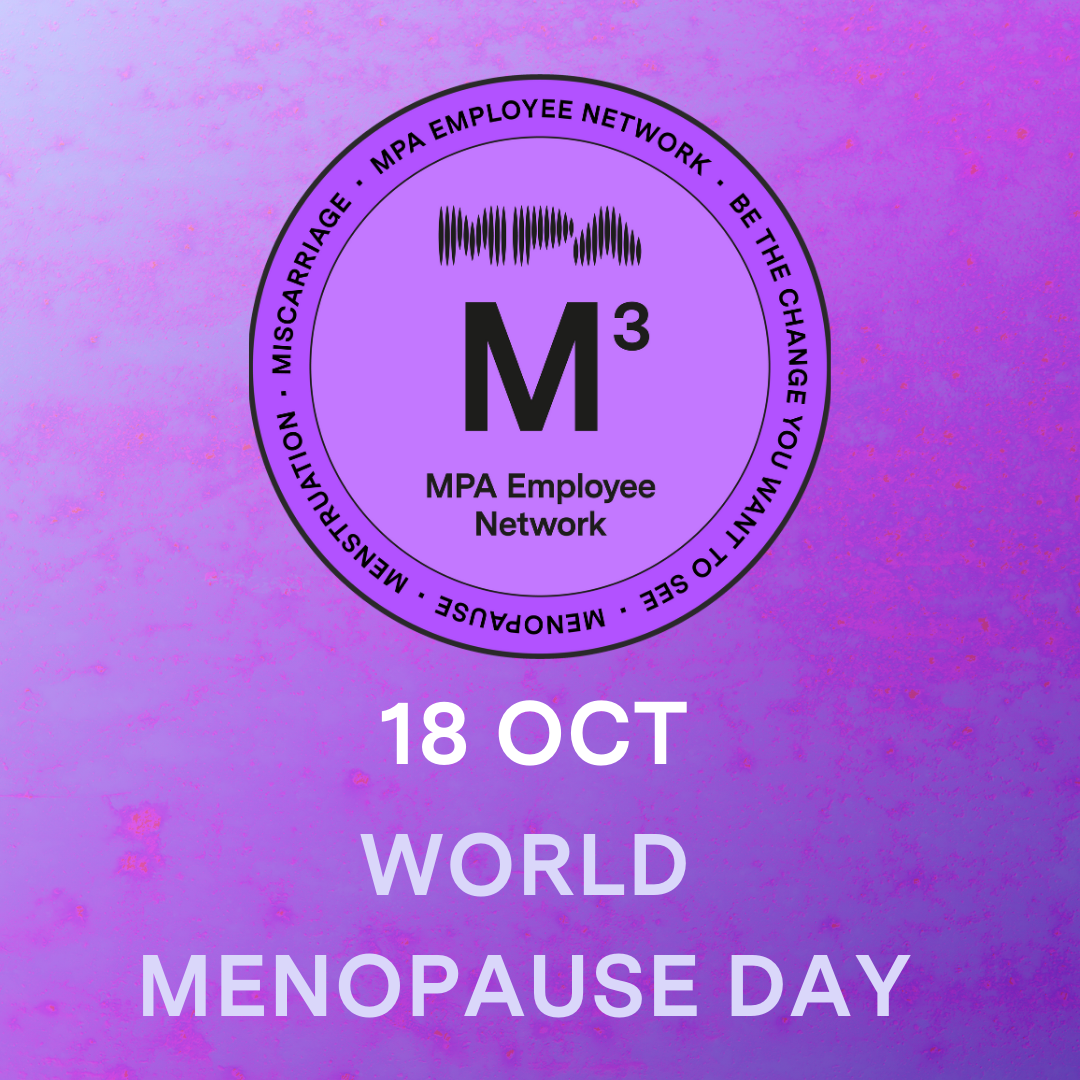MPA Celebrates Menopause Awareness Month & World Menopause Day | 18 October

Date
Written by the MPA DEI Team
At the MPA, we understand how important it is for a workplace to support those going through ‘the change’. We run an employee network to cover topics on menopause and related health matters and we have also published guidance for managers on how to support staff during this stage of life.
Every October, we celebrate Menopause Awareness Month and World Menopause Day on the 18th. The purpose is to raise awareness of the menopause and the support that is available. Each year there is a new theme which aims to shine a light on different topics surrounding menopause. The theme for this year is Menopause Hormone Therapy (MHT). This day offers an opportunity to take a closer look at the benefits, risks, and ongoing advances in MHT, aiming to provide women with informed choices as they navigate menopause.
Understanding Menopause
Menopause, typically occurring between the ages of 45 and 55, is the time in a woman’s life when their ovaries cease to produce eggs. It also brings a change in hormones, such as a drop in oestrogen and progesterone levels. This can lead to a variety of symptoms such as;
- Hot flushes and night sweats.
- Mood swings and irritability.
- Bone loss which can lead to osteopenia or osteoporosis.
- Cognitive changes, memory problems or difficulty concentrating.
Like a lot of things, this can be dependent on the person, these symptoms can range from mild to having a significant impact on a person’s life. This is where menopause hormone therapy can make a huge difference.
What is Menopause Hormone Therapy?
Hormone therapy involves supplementing the body with the hormones that are no longer being produced naturally – oestrogen and progesterone. There are several forms of MHT, pills, patches and gels, which are tailored for specific symptoms and needs. The ideal outcome of MHT is to alleviate the symptoms and reduce long-term health risks such as osteoporosis and heart disease. However, this is not a one-size-fits-all and it is important to consult doctors or healthcare professionals to discuss the benefits and the risks of any new medication.
While MHT has clear benefits, it’s important to acknowledge the potential risks. In some women, especially those with a history of breast cancer, blood clots, or stroke, hormone therapy may not be suitable.
The spotlight on Menopause Hormone Therapy this year underscores the importance of understanding its potential benefits, particularly for women struggling with the life-altering effects of menopause. MHT has evolved, and ongoing research has helped refine its application, ensuring that it is safer and more effective than ever.
Why is Menopause Awareness Month important?
It is important that we raise awareness about menopause, to help people have a further understanding of how it impacts people and how we can better support people in the workplace who are going through this time. Menopause can impact your health, so it’s important that women know when to consult their doctor. One in three women experience problems during menopause and it opens the conversation to discuss freely how to get the right support and not suffer in silence.
How can you get involved?
- Join seminars and webinars to further your knowledge of Menopause.
- Check Menopause Friendly for menopause at work information.
- Hold a group where people can discuss freely the impacts menopause has had on them and how to support each other.
As we celebrate Menopause Awareness Month and World Menopause Day, we are reminded that menopause is not something women need to suffer in silence for. Ensuring they have the right treatment, education and support, women can take control of the next phase of their life.
Resources
Menopause and MHT in 2024: addressing the key controversies – an International Menopause Society Whi (imsociety.org)
Free Menopause Support For Individuals | Menopause Friendly UK
Benefits Of Supporting Menopause At Work | Menopause Friendly
World Menopause Day : South Yorkshire I.C.S. (syics.co.uk)
For more information or to join our M3 (Menopause, Menstruation, Miscarriage and related health matters) Employee Network, please contact:
Helen Choudhury
Head of Diversity, Equality and Inclusion
[email protected]
Mandy Feighery
D & I Officer
[email protected]